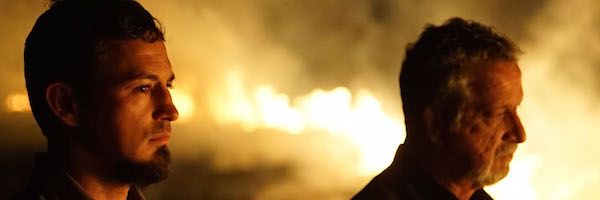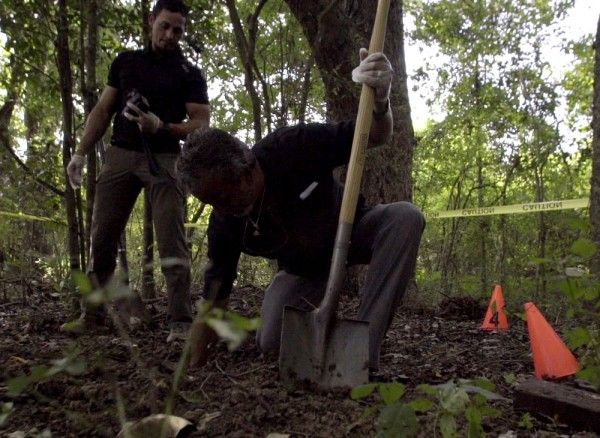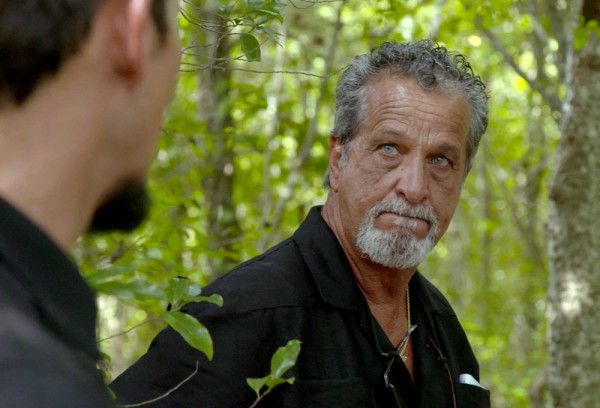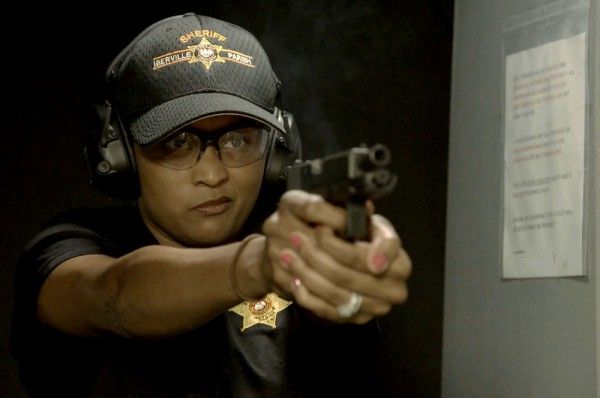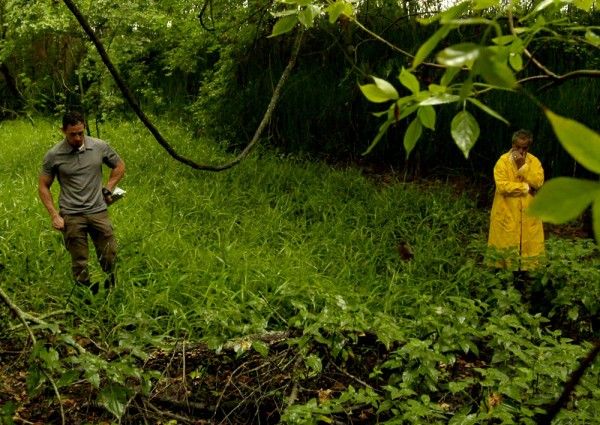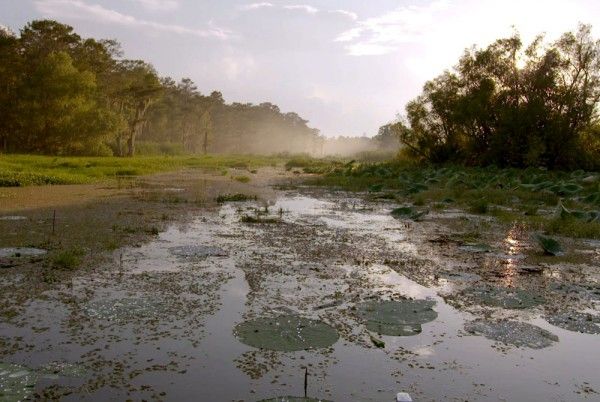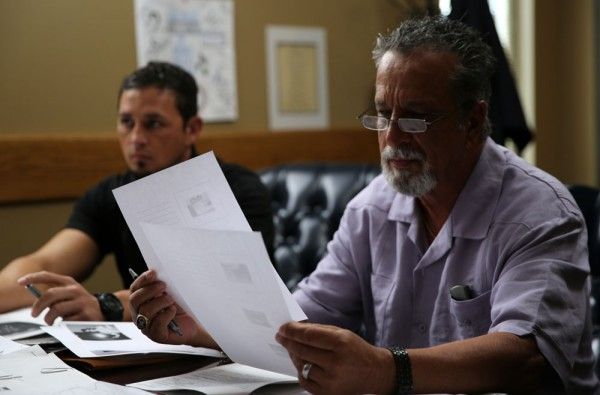Co-executive produced by Emmy Award-winning producer Tom Fontana (St. Elsewhere, Homicide: Life On The Street, Oz) and Academy Award-winning film director Barry Levinson (Rain Man, Diner, Bugsy, Good Morning, Vietnam), the unscripted Discovery series Killing Fields is delving into a case that went cold nearly two decades ago, in the small community of Iberville Parish, Louisiana, for which Detective Rodie Sanchez decided to come out of retirement in an attempt to finally solve. In June 1997, Louisiana State University graduate student Eugenie Boisfontaine was last seen near LSU’s lakes, and her body was found two months later, in a watery ditch nearby with evidence of blunt force trauma to her head.
While at the TCA Press Tour, executive producer Barry Levinson spoke to Collider for this exclusive interview about how he got involved with Killing Fields, why this project appealed to him, the difference in storytelling between fictional crime and true crime, finding interesting people to follow, coming to terms with telling a story when you don’t know where and how things will end up, and that he’d like to do another season. He also talked about always staying up on the newest filmmaking technology and why all the changes have been a seamless transition for him.
Collider: How did you come to this project?
BARRY LEVINSON: I don’t remember the whole mechanics of it. Tom Fontana, who is my partner and we’ve worked on a number of pieces together, called me and said, “I’ve had this discussion with Discovery about this show.” He laid out what it would be, and I said, “Well, that’s intriguing.” He said it would be more cinematic, and he had a couple little clips of a few things that showed what their thoughts were. I immediately said, “This could be really interesting.” I’m fascinated by documentaries, to begin with. Because of the nature of television, as opposed to theatrical, documentaries can be in this long form and take you on a journey. So, I was intrigued by it. That’s where it began.
You’ve done fictional crime stories, but had you ever thought about doing true crime?
LEVINSON: No, not really, but that’s the fun of the business. I’ve never been locked into, “Well, this is what I do.” I started in television, and then I started doing films. Even after Rain Man winning the Academy Award, I went back to television to do Homicide. I’ve always loved television, but I like all these different forms. If I could find a way to work in it and can make sense of it to myself, or if a door opens, then that’s great. I’m fascinated by these different things, and certainly this. This is something that television can explore that’s much more difficult in theatrical.
Does film and TV all feel very similar for you?
LEVINSON: Yes. It’s been coming for awhile, but now it’s all exploded. There was a time when I said, “I’m going to go do a television thing,” after doing all these theatrical films, and heard, “Television? Why are you going to go back to television?” It’s an interesting place. At that time, I didn’t care about that. It’s all very similar, especially for writers and actors, in so many ways. Theatrically, there’s a very narrow window, in terms of creativity. You have to work in this little box. It’s a great time, in terms of television, because it is pushing boundaries all over the place. That’s what’s interesting about Killing Fields. We’re not doing re-enactments, and things like that. We get more into character work, in this piece.
Along with this being a fascinating case exploration, the individuals that the show follows are such compelling characters. Was it important to you that the people involved be as interesting to watch as the case itself?
LEVINSON: Yes. What happened and who did it is an element, but it is not all of the show. You watch the relationships of these people and they feel like characters that you could see in a movie, except that it’s real life. I think that’s what sets it apart. We have to ultimately involve ourselves with these characters, and certainly with Rodie [Sanchez], who is on this journey that goes back to when this happened 18 plus years ago.
Does your background in scripted storytelling help with a project like this, or is it just too different?
LEVINSON: It’s different, but it’s helpful. You do understand that you can’t force the situation, but in terms of how you edit, you can define that to take the audience along, whether it be a storyline or a character moment that we can play out. The more experience you’ve had, the more beneficial it is, period. There’s no downside to having too much experience.
What was it like for you to go from doing something like Homicide, where you’re exploring the effects of crime on fictional characters, to working with real people who have really been affected by it?
LEVINSON: If you go all the way back to Homicide, which was based on David Simon’s book, we were really looking into the lives of those real characters that he wrote about. And so, Homicide was a show that said, “Okay, we’re not going to solve a crime every week, but this is the world of a homicide detective and this is how it plays on their life.” We were also trying to get to something beyond the procedural. The next step is actually following the real people.
As someone who is a director yourself, you’re used to being in charge of shaping the story. When you go into something like this, not knowing what your endpoint is or how things are going to get resolved, if they get resolved, is it difficult to let that go?
LEVINSON: It’s a good question, but I don’t know if I can answer it well. This is a totally different thing, but if you were doing improvisation, you would say, “Here are these specifics. Let’s see what happens.” If you’re doing an improv, you’re going to see what happens. With this, you can’t do that. You may refine, but initially, you’re not sure where it’s going to go and you have to let it play out. You’re not going to have every moment. You have to condense it down, and in condensing it down, you’re going to find the pertinent moments that are going to support the building blocks of the piece. But, you have to allow it to be outside of your control. You cannot exert control, or then you will kill it. You’re going to have to allow behavior to play out. There’s a certain amount of, “Let’s just see what’s going to happen.” You can’t force it. It’s open. You’re wandering into places and you don’t know where it’s going to take you, but you have to go with that and allow for the discovery and allow for the characters to unfold as they will, and see where it’s going to take you. That’s part of the interesting thing about it. They’re going to stumble and progress to dead ends or to things that are interesting. It’s a forum that I think is fascinating, but it gets back to the discovery of the characters.
Because you don’t know the endpoint to this story, what happens if this case doesn’t get resolved?
LEVINSON: That may be fine because you’re dealing with a crime, a mystery and a character, so it’s about the character’s resolution to it. You don’t always have to have the ending, but you want to have a satisfactory conclusion. I think we’re going to see where that goes. We have to see where it ends with the character.
Rodie Sanchez has been away from the job long enough that he’s in a very different technological world now. Will we continue to see the effects of that?
LEVINSON: Yeah. In an 18-year time span, you’re talking about a gigantic change. It’s not like you’re talking about 1928 and 1940. This progression and the speed of changes in information and how it’s played out is interesting.
The technology for filmmakers is so different now, as well. Have you made a seamless transition with the new equipment and new technology?
LEVINSON: That was relatively easy because you are in the midst of it. It’s coming back to it when it becomes difficult. As soon as digital editing came about, I immediately made the switch to digital. In fact, we used to have a trailer that would go with us on the set because it was so portable and so easy. Even back in the ‘90s, I shot certain things on something that wasn’t digital then, but it was on VHS with a smaller camera and we would up it to film. Because we were in the middle of it, we were playing with all of that stuff. I did this little documentary, called The Bay, that was about an ecological disaster in the Chesapeake Bay, that I shot for under $2 million with these little digital cameras, and that was four or five years ago. I would give the cameras to the kids in the swimming pools and they would play with them, and then I would collect them and we would upload it. If you’re in the process, you’re there. If I had walked away and came back, it would have been different.
Would you like to do another season of Killing Fields?
LEVINSON: Yeah. It comes down to, who is the person or persons? How interesting are they? Can we invest our time and our interest in this person or persons, or group? What is the case that we’re following? Those are the bullet points. It’s not like, “Every hour we’re going to do this, and we’re going to end on a cliffhanger.” If we can connect with the viewers and take them on a journey, it’s pretty fascinating.
Killing Fields airs on Tuesday nights on Discovery.

